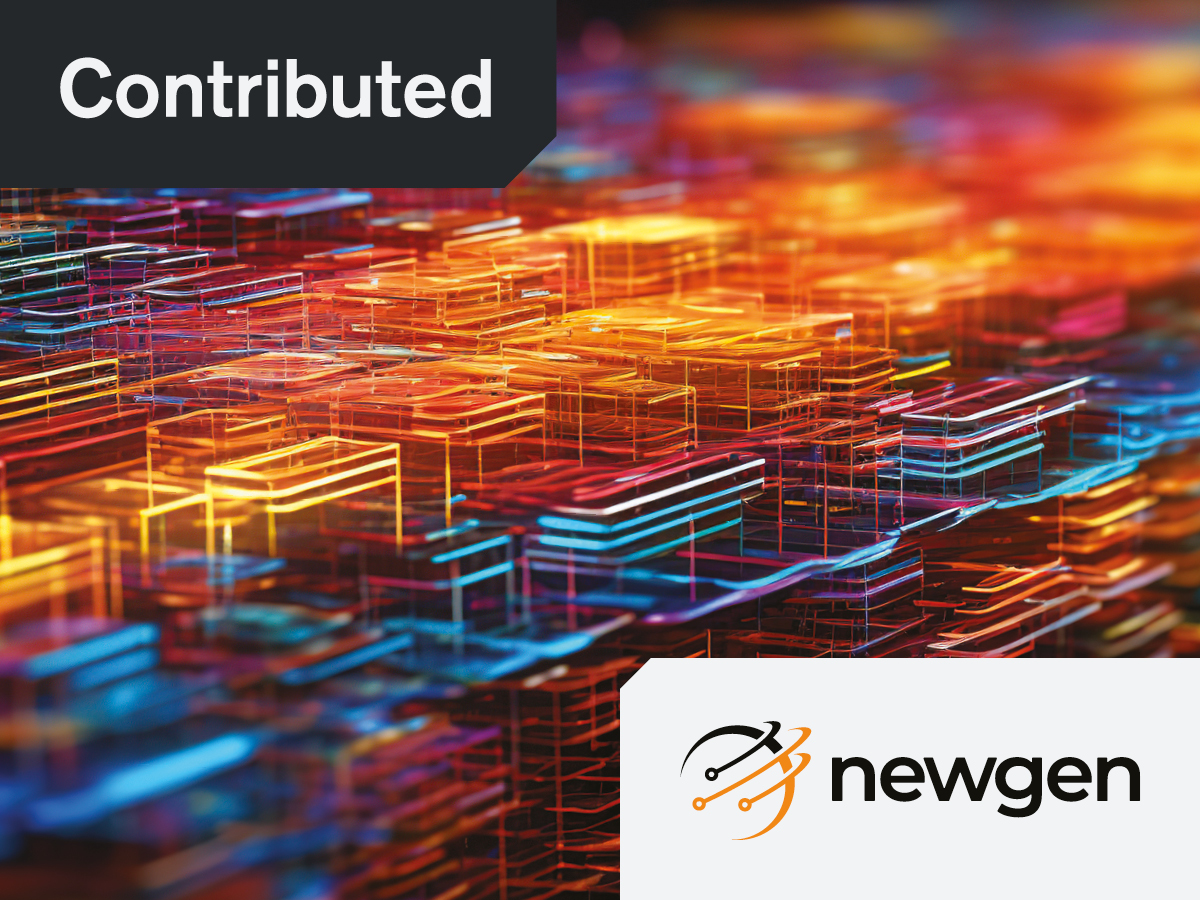Gurkirpal S Ahluwalia, head of trade finance at Newgen Software Technologies Ltd, explores the transformative impact of AI and low code on global trade finance.
Global trade would be a daunting affair if not for trade finance. It has facilitated international trade and is crucial in boosting the global economy. Today, up to 90% of world trade relies on trade finance. However, the traditional trade finance processes have long been plagued by inefficiencies, manual tasks and a lack of transparency. Modern trade finance platforms, powered by artificial intelligence (AI) and low code, are reshaping the trade finance landscape by automating and centralising the standard trade processes. These platforms are helping financial institutions streamline their trade finance operations, reduce risks and enhance overall efficiency.
The age-old hurdles
Trade finance is the mainstay of global commerce, enabling businesses to bridge the gap between production and payment in international trade. However, as businesses have expanded and international trade has grown more complex, traditional trade finance processes have struggled to keep up with the changing dimensions. Manual tasks, including document verification, compliance checks and the assessment of trade risks, have remained a burden for banks and financial institutions. These processes are time-consuming and error-prone, leading to costly delays and inefficiencies.
Moreover, trade finance is often criticised for its lack of transparency. Multiple parties are involved in a single transaction, including buyers, sellers, banks and shipping companies. The opacity of traditional trade finance systems leads to disputes, fraud and a lack of trust, hindering global trade growth.
Transforming trade finance for the modern era: Leveraging AI and low code capabilities
Modern trade finance platforms infuse intelligence into the standard trade processes and leverage AI capabilities to automate many time-consuming and error-prone tasks that have plagued the industry for years. By incorporating a combination of AI and low code solutions in trade finance operations, businesses can streamline various trade processes, enhancing efficiency and transparency.
Here’s how the duo of AI and low code is reshaping the trade finance domain:
- Effortless document management: Trade finance products are document intensive. Modern AI-powered trade finance platforms, coupled with low code flexibility, can seamlessly handle and auto-scrutinise trade documents, such as commercial invoices, transport documents, certificates and other supportive documents viz LC conditions and ICC published rules, along with their consistency of data. They not only accelerate the document validation process but also centralise trade-related activities.
- Enhanced risk assessment: AI-powered algorithms assess the creditworthiness and risk associated with each trade transaction. These algorithms analyse a wide range of data points, including historical trade data, customer transactional behaviour and market trends, providing a more accurate risk assessment than traditional methods.
- Real-time tracking: Trade finance platforms equipped with AI offer real-time tracking of trade transactions, providing all parties involved with a clear and up-to-date view of the progress. This transparency enhances trust and minimises disputes.
- Compliance checks: Modern trade finance platforms automate compliance checks, ensuring that all trade transactions adhere to the latest regulations and international standards. This reduces the risk of financial losses and regulatory fines and penalties.
- Customisation: AI-driven and low code trade finance platforms can be configured to cater to the specific needs and requirements of banks and financial institutions. This adaptability allows businesses to fine-tune their trade finance processes for optimal performance, making it a powerful combination for the modern era.
What’s more?
Modern trade finance platforms don’t just rely on AI; they offer a comprehensive solution that addresses the entire trade finance lifecycle.
Here are some of their unique advantages:
- Seamless integration: These platforms seamlessly integrate with a business’ existing trade finance systems, ensuring a smooth transition and minimal disruption to ongoing operations.
- Scalability: Whether you are a small regional bank or a global financial institution, the platforms can scale to meet your business needs.
- Improved customer experience: The speed and efficiency of these trade finance platforms enhance the overall customer experience, helping banks attract and retain clients in a highly competitive market.
- Reduced costs: By automating manual tasks and streamlining processes, the AI-powered platforms help banks cut operational costs and improve profitability.
Revamp your trade finance processes with Newgen
Trade finance is a vital component of the global economy, but its traditional processes have long needed a digital transformation. Newgen’s trade finance platform offers the perfect solution to modernise age-old processes. The platform combines the power of low code and AI and offers an innovative and efficient solution for trade finance operations. This combination allows for rapid customisation while automating critical processes like document management, risk assessment and compliance checks. It’s a powerful tool for modern trade finance.
Furthermore, Newgen’s trade finance platform is Swift compatible and Swift certified, thus eliminating the risk of trade payment failures. We have also been featured in the Gartner market guide for global trade finance.
Join the ranks of industry leaders who are already reaping the benefits of our trade finance platform. Reach out to our experts at info@newgen.com







